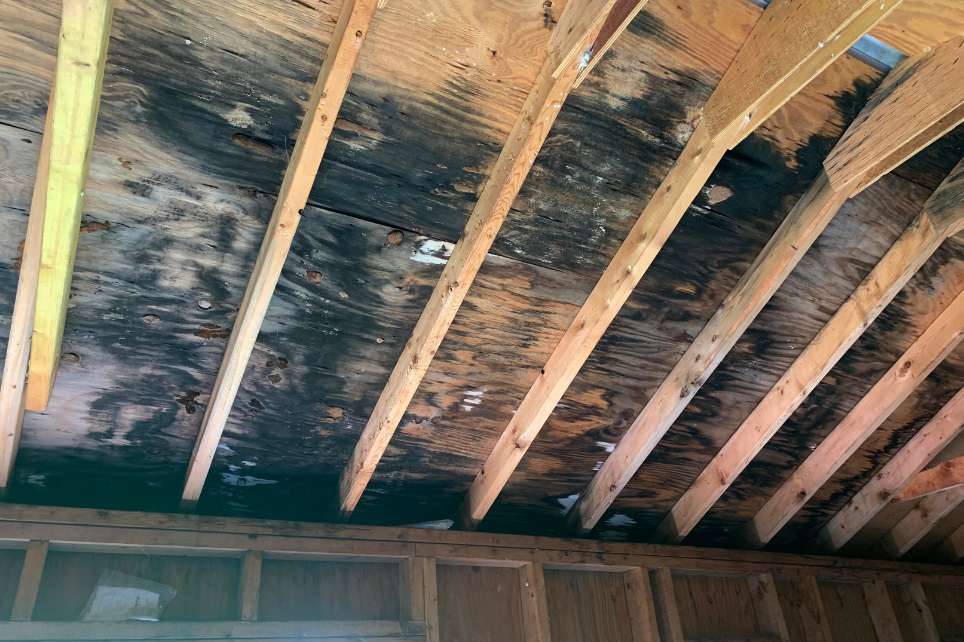The Dangers of Black mold exposure during pregnancy are the various significant health risks for both the mother and the developing fetus. Black mold, scientifically known as Stachybotrys chartarum, is a toxic variety of mold that thrives in damp, humid environments. Contact or inhalation of black mold spores can lead to a range of health issues, which are particularly amplified during pregnancy.
Identifying Black Mold
Black mold is often characterized by its dark greenish-black color. However, it’s worth noting that not all molds that appear black are the toxic Stachybotrys chartarum. Black mold grows on materials with high cellulose content, such as gypsum board, fiberboard, paper, lint, and dust that become chronically moist or water-damaged.
The mold’s distinct musty odor can help in identifying potential growth areas. However, mold can also grow in hidden areas, such as behind walls or under floors. Hence, it’s essential to be proactive in preventing and managing black mold.
Potential Health Risks of Black Mold Exposure During Pregnancy
Exposure to black mold during pregnancy can augment the risk of several health issues, including:
1. Respiratory Complications:
Inhaling black mold spores can precipitate respiratory difficulties, such as persistent coughing, wheezing, and a sense of breathlessness.
2. Allergic Responses:
Black mold can trigger allergic reactions, including skin rashes, eye irritation, and nasal congestion.
3. Fetal Development Concerns:

Exposure to black mold during pregnancy can adversely affect fetal development, potentially leading to low birth weight, respiratory complications, and neurological impairments.
4. Weakening of the Immune System:
Black mold exposure can compromise the immune system, making pregnant women more susceptible to infections and other illnesses.
5. Miscarriage and Stillbirth:
In severe instances, exposure to black mold during pregnancy can result in miscarriage or stillbirth.
Preventive Measures and Treatment Options:
Prevention is of utmost importance in avoiding black mold exposure during pregnancy. Here are some effective steps to prevent mold growth:
- Maintain a dry and well-ventilated home to avoid the damp conditions black mold needs for growth.
- Use a dehumidifier in particularly humid areas like the basement or bathroom.
- Promptly repair any leaks or water damage.
- Clean and dry any areas where flooding has occurred within 24-48 hours to prevent mold growth.
- Use mold-resistant products like mold-resistant drywall or mold-resistant Sheetrock, and mold inhibitors for paints.
If you suspect exposure to black mold during pregnancy, it is crucial to seek medical attention without delay. The treatment might encompass medications to alleviate symptoms or, in severe cases, hospitalization.
Moreover, if you find black mold in your home, it’s essential to hire a professional mold remediation service. They can properly and safely clean the mold and ensure that it doesn’t return. You can contact us to serve you in and around the Orlando, Florida region by contacting us.
In conclusion, black mold exposure during pregnancy can pose serious health threats to both the mother and the developing fetus. Expecting mothers should adopt proactive measures to deter black mold growth in their living spaces and seek immediate medical intervention if exposure is suspected. Prioritizing the health and safety of both the mother and the developing baby is essential during pregnancy.

